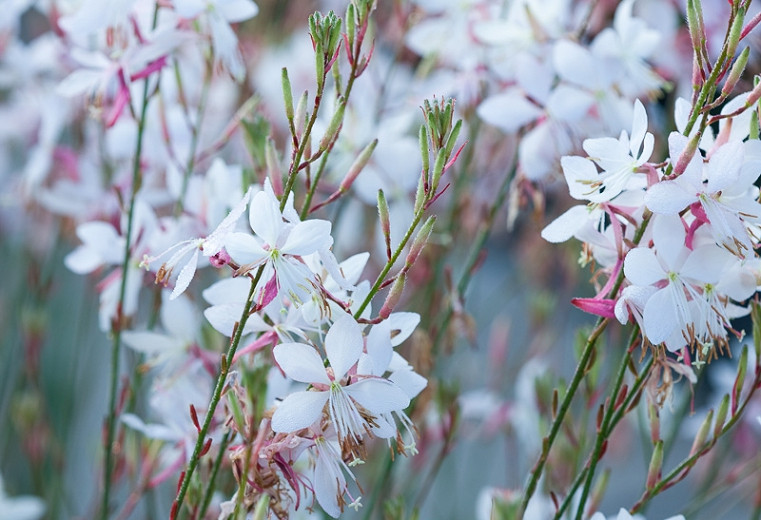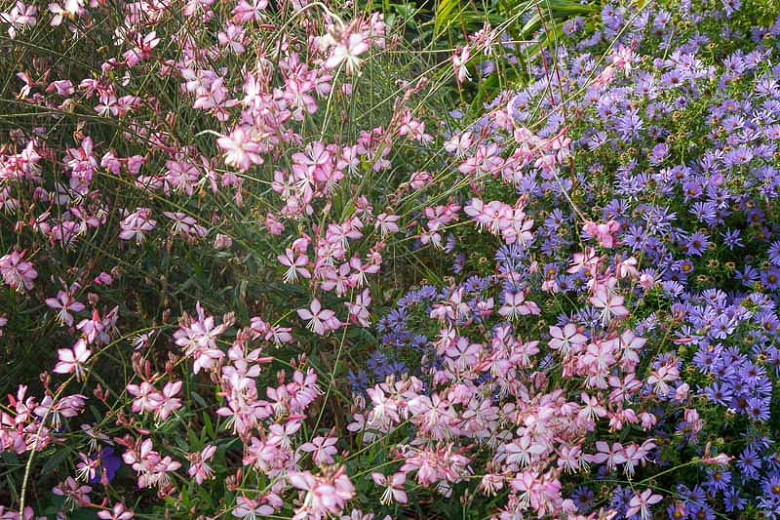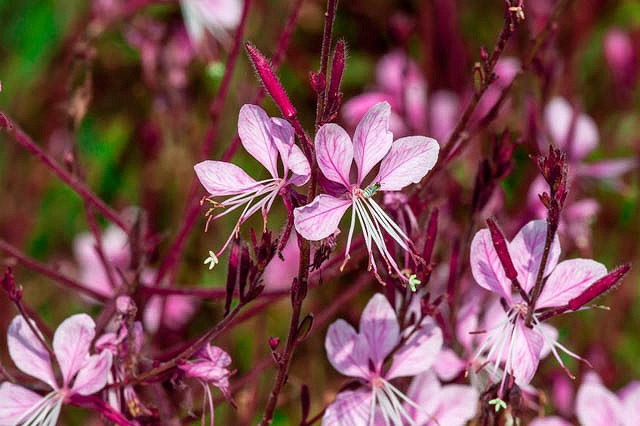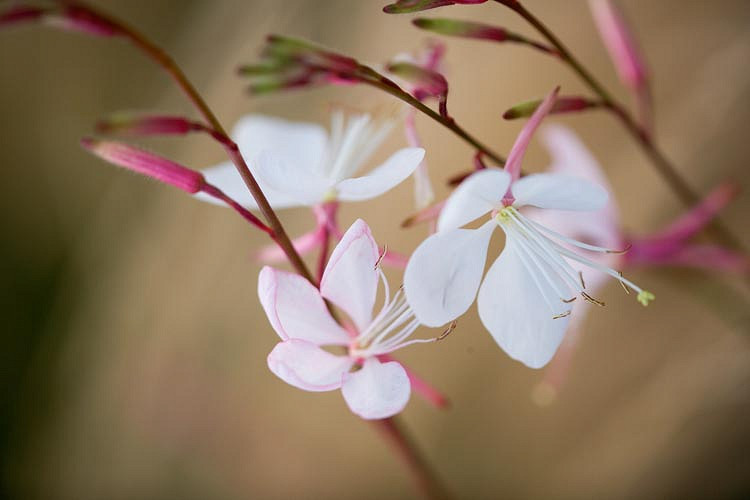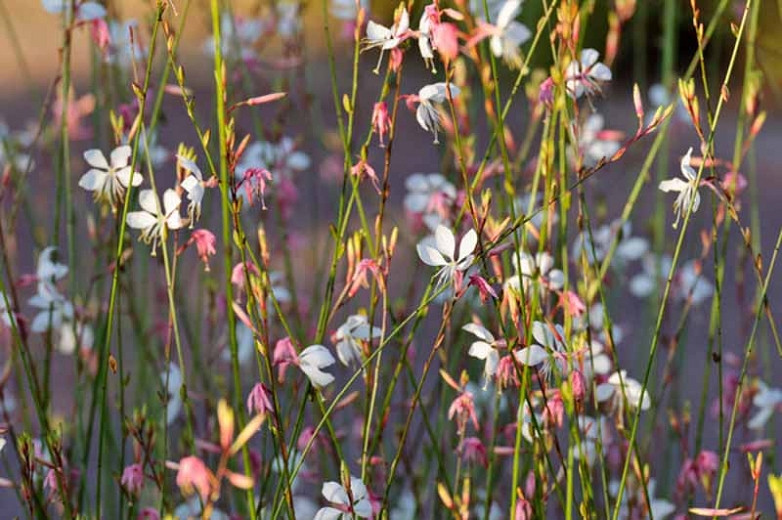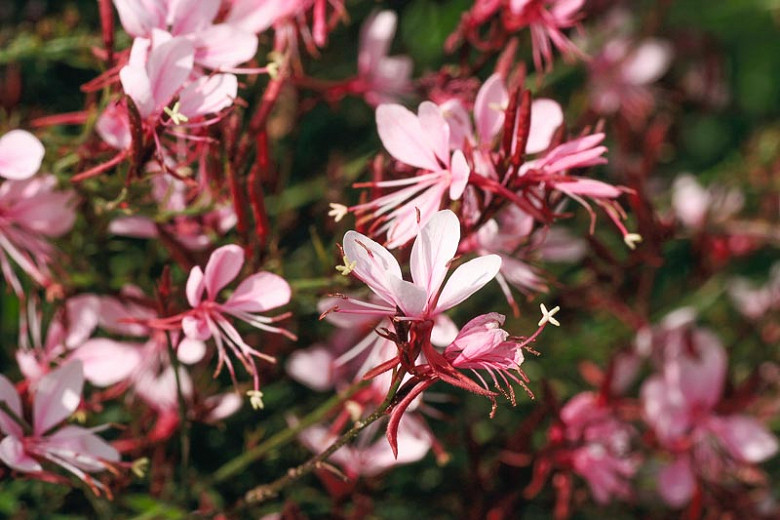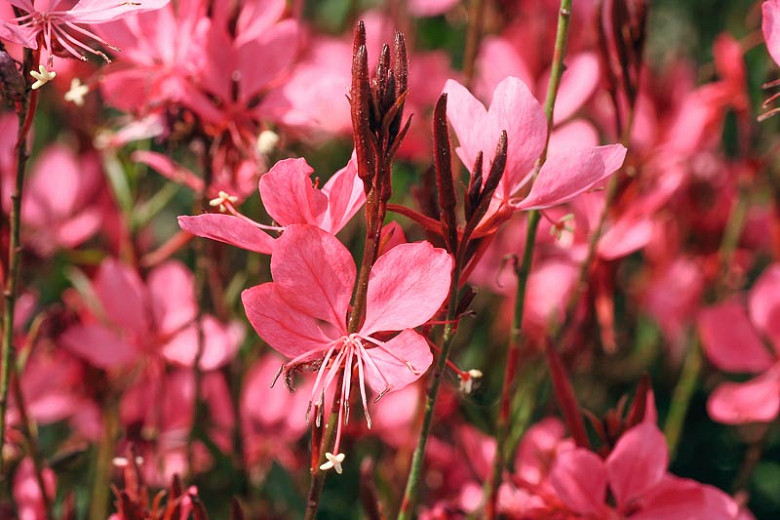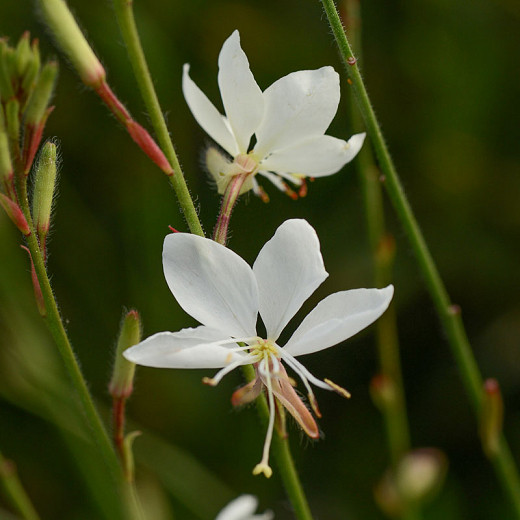Gaura lindheimeri (White Gaura)
Native to Texas and Louisiana, Lindheimer’s Beeblossom (Gaura lindheimeri) is a remarkably pretty perennial plant with tall, airy-looking flowers giving the appearance of butterflies floating in the garden.
Native to Texas and Louisiana, Lindheimer's Beeblossom (Gaura lindheimeri) is a remarkably pretty perennial plant with tall, airy-looking flowers giving the appearance of butterflies floating in the garden. It adds a unique texture in the garden with its 4-petaled, pink-tinged or white, 1 in. long (2.5cm), butterfly-like flowers borne at the top of the airy spikes.
- Gaura enjoys a long blooming season, typically from early summer into fall, with only a few flowers opening at a time. However, they bloom in sufficient numbers to create a very graceful display for weeks.
- Gaura forms vase-shaped clumps, about 2–4 ft. high (60-120 cm) and 2–3 ft. wide (60-90 cm), of erect or arching, densely clustered wand-like stems. The flower spikes bear many white blossoms that open from pink buds. They mature to a rosy shade before dropping off. The foliage consists of lance-shaped mid-green leaves, growing directly from stems.
- Recipient of the prestigious Award of Garden Merit of the Royal Horticultural Society
- A full sun lover, Gaura thrives in sandy, loamy, well-drained soils and can survive long periods of drought. Tolerates heat, humidity, partial shade and dry soils too!
- Deer and rabbit resistant, Gaura attract butterflies and hummingbirds.
- Perfect for the sunny border for its accent color and delicate texture, Gaura can also be used in containers, rock gardens, or naturalistic meadows. Stunning in small groups or large drifts.
- Low care, Gaura thrives on neglect and is virtually disease and pest free
- Although deadheading is not necessary for continued blooming, you may want to trim back some flowering stems in midsummer. This will encourage new flowering stems to emerge. Flowers will also be closer to the foliage and the plant will look tidier.
- Removing spent flowers will also prevent overly enthusiastic self-sowing.
- Division is not necessary and resented by the plant because Gaura grows from a thick taproot.
Requirements
| Hardiness | 5 – 9 |
|---|---|
| Heat Zones | 5 – 9 |
| Climate Zones | 2B, 3, 4, 5, 6, 7, 8, 9, 10, 11, 12, 13, 14, 15, 16, 17, 18, 19, 20, 21, 22, 23, 24 |
| Plant Type | Perennials |
| Plant Family | Gaura |
| Exposure | Full Sun |
| Season of Interest | Summer (Early,Mid,Late)Fall |
| Height | 2' – 4' (60cm – 120cm) |
| Spread | 2' – 3' (60cm – 90cm) |
| Spacing | 10″ – 12″ (25cm – 30cm) |
| Water Needs | Low, Average |
| Maintenance | Low |
| Soil Type | Chalk, Loam, Sand |
| Soil pH | Acid, Alkaline, Neutral |
| Soil Drainage | Moist but Well-Drained, Well-Drained |
| Characteristics | Cut Flowers, Plant of Merit, Showy |
| Native Plants | United States, Southeast, Louisiana, Southwest, Texas |
| Tolerance | Deer, Drought, Rabbit, Dry Soil |
| Attracts | Butterflies, Hummingbirds |
| Garden Uses | Beds and Borders, Patio and Containers |
| Garden Styles | Coastal Garden, Gravel and Rock Garden, Informal and Cottage, Mediterranean Garden, Prairie and Meadow |
